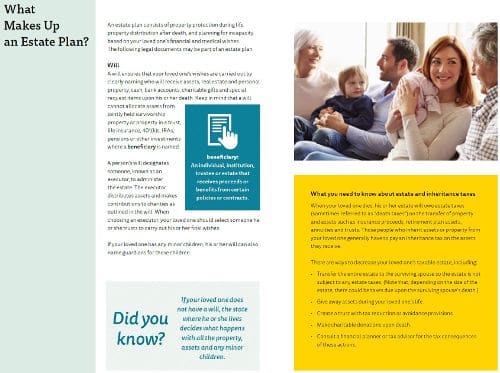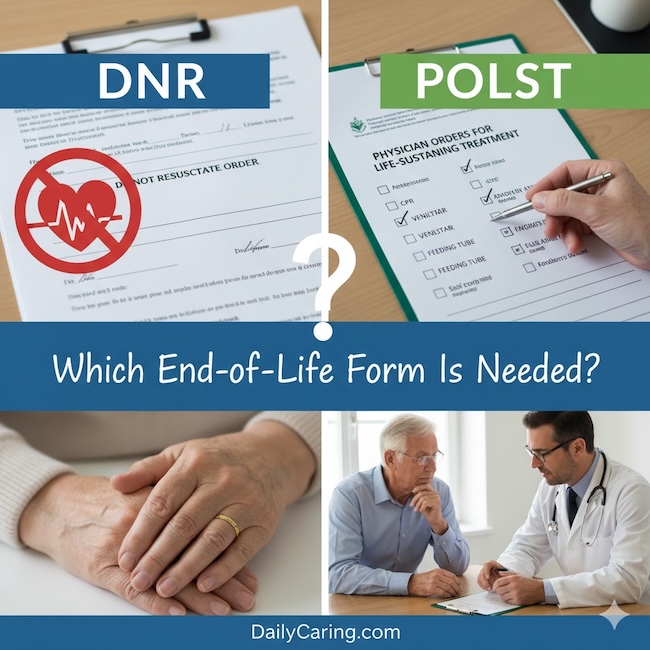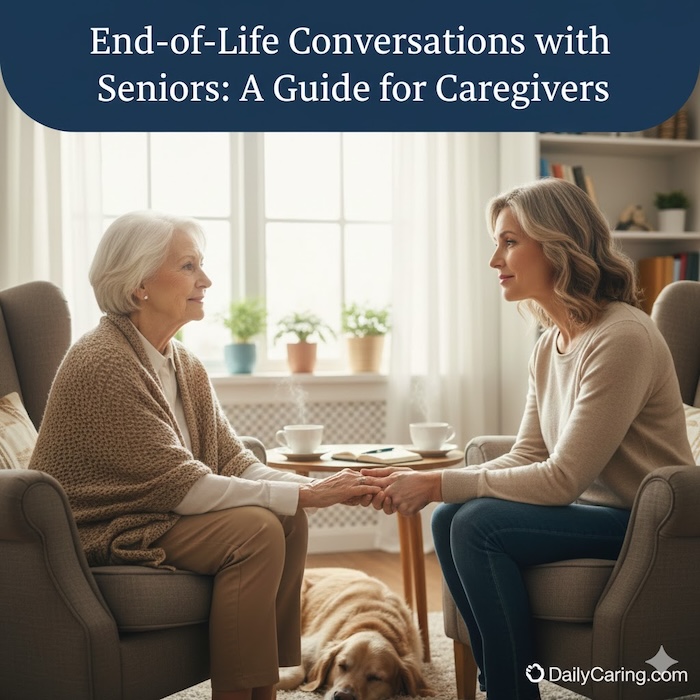Amid the daily tasks of caregiving —like managing medications, preparing meals, and providing comfort —it's easy to let the “legal stuff” fall to the bottom of the list. Terms like power of attorney and advance directives can feel intimidating and abstract, making it tempting to think, “We'll get to that later.”
But in the world of caregiving, a legal emergency is often a medical emergency. A sudden health crisis can instantly bar you from making crucial financial or healthcare decisions for your loved one. Taking proactive steps now isn't about expecting the worst; it's about creating a framework of clarity and protection that allows you to act with confidence and authority when it matters most.

Let's break down the legal basics into a simple, actionable starting point.
Part of Being a Caregiver Includes Getting Legal Paperwork in Order
Caregivers often put off addressing the “legal stuff” because it can be confusing and challenging to know where to start.
But when you’re caring for an older adult, a vital part of the job is making sure essential legal documents are in order.
That allows someone to help with financial or medical decisions when necessary.
Completing the paperwork ahead of time will save time, money, and headaches in the long run.
To help you get started, we found a helpful free guide from ARAG that gives an overview of caregiving legal basics.
It uses straightforward language to cover key issues like planning for when your older adult will need someone to speak for them, housing options, end-of-life choices, and more.
We explain what’s in the guide and how it helps with critical legal issues related to caregiving.
Free “Guide to Caregiving Legal Basics” Helps You Get Started
We like this free guide to caregiving legal basics because the information is organized into easy-to-read sections.
We also like that it provides unbiased information to help you understand which legal documents are needed, why they’re essential, and how to get started.
The guide includes:
- Checklists
- Definitions of key terms
- Suggested questions to help you start sensitive discussions
- Tips on how to choose representatives, save on taxes, etc.

How the Free Guide Helps with Important Caregiving Legal Issues
This caregiver legal basics guide covers six sections. Here’s what each of them includes:
Estate planning
- What an estate plan covers
- Which documents are needed and why
- A 6-step checklist for how to create one
Working with an attorney
- What to expect from hiring an attorney
- How they’ll work with your older adult and the family
Planning for incapacity
- How a legal guardian could take over when someone is not able to make their own decisions
- The process is for declaring someone incapacitated
Housing considerations
- Checklists to help decide the best place to live
Other issues
- Managing financial and insurance matters
- Funeral planning
- Tips to help caregivers care for themselves
Final Thoughts About the Free Guide to Legal Basics
Completing these foundational legal steps is one of the most profound gifts of peace of mind you can give your entire family. While it may feel daunting, remember that you don't have to do it all at once.
Focus on the first document, make that appointment with the attorney, or start the conversation. Each step you take builds a crucial layer of security, ensuring that your loved one's wishes are honored and that you are legally empowered to act on their behalf.
You are not just organizing paperwork; you are building a safety net made of clarity and compassion, freeing you to focus on what truly matters—caring for your loved one.
Recommended for you:
- 5 Smart Tips for Hiring an Elder Law Attorney
- Simple End-of-Life Planning: The Five Wishes Living Will
- How to Estimate Long-Term Care Costs to Make Care Decisions Easier
About the Author

Connie is the founder of DailyCaring.com and was a hands-on caregiver for her grandmother for 20 years. (Grandma made it to 101 years old!) She knows how challenging, overwhelming, and all-consuming caring for an older adult can be. She also understands the importance of support, especially in the form of practical solutions, valuable resources, and self-care tips.














I am a Notary Public in AZ, so this article was of interest. One issue that is important is to be certain to obtain forms for End of Life – POA, Advance directive, will, etc. from the state of residency. Each state is a bit different regarding these issues. I also have been called to help a family where the husband/father is really not completely cognitive and at that point, I can’t help. An attorney should be one who specializes in elder law. Most states, I think, as here in AZ, have End of Life packets containing the necessary forms. One thing I will not notarize is signatures on a hand drawn will.
Excellent points, thank you for sharing!
Caregiving: an overview Guide… I follow the link for this from DailyCaring.com. I also searched for this guide. I cannot find it. Does the guide go by a different title? Has ARAG discontinued it?
Thank you so much for letting us know! We do our best to monitor for broken links, but sometimes one will slip through. We’ll contact ARAG to find out what happened to their guide.
Thanks for your patience! We’ve got a new (working) link to the Caregiving overview guide from ARAG. You should be able to download the guide now.
Great Post!
Thanks! So glad this is helpful.